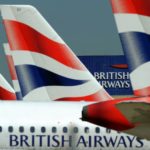
Airline operators have called for the local refining of aviation fuel, known as Jet A1 in order to enable them survive and operate profitably, as the product takes over 30 per cent of their operational cost.
The operators said that if locally refined, the product would become cheaper and available and this would help them project their cost and plan ahead in their operations.
Currently the product is imported and the prices fluctuate according to landing cost and availability, as the prices could go up without warning, which hampers long term planning.
Also because of the high cost of the product in Nigeria, foreign airlines that operate into the country buy their fuel from Ghana and some from Togo, which has functioning refineries; unlike in Nigeria where the existing refineries are in comatose.
The operators are demanding that now the refineries are slated for turn around maintenance, the ones in Warri and Kaduna should prioritise refining of Jet A1 in addition to other products so that while the Kaduna refinery distributes the product in the northern part of the country, the Warri refinery would supply to the southern airports.
The Executive Chairman of Airline Operators of Nigeria (AON), Captain Nogie Meggison said that Nigerian airlines would significantly improve their revenue and spend less on operations if aviation fuel is produced locally because the prices would be lower than what is currently obtained and would also be more stable.
He however lamented that the refineries have not been rehabilitated for a long time, hoping that this time the turnaround maintenance would be executed as planned and priority given to aviation fuel refining.
Meggison noted that although it is the product that has high demand that would determine what the refineries would produce but government can dedicate one or two refineries to prioritise aviation fuel refining.
The Director of Consumer Protection Directorate of the Nigerian Civil Aviation Authority (NCAA), Adamu Abdullahi said that in the past the Kaduna and the Warri refineries were dedicated to aviation fuel refining, which made the product available but since the refineries went under, Nigeria has continued to import the product, which keep the prices very high in Nigeria, while it is sold cheaper in Ghana, Togo and all West African countries.
In fact, THISDAY learnt that the cost of aviation fuel in Nigeria is the highest among countries that are in peace in Africa and that there are cartels that encourage the continued import of the product.
Former Managing Director of Capital Airlines and currently industry consultant with Etimfri Group, Amos Akpan, told THISDAY that as at today, aviation fuel constitute 40 per cent – 45 per cent of the cost of operating a Boeing 737 aircraft in Nigeria for one hour.
“The unit price of aviation fuel is between N220 to N240 per liter. The B737 burns between 3000 liters and 3500 liters per hour on flight. This varies per aircraft type but it’s safe to say that same principle can be applied in accordance with the aircraft type.
This means all other components share 55 per cent – 60 per cent of the cost of operations. We must remember that insurance cost has risen, cost of funding is higher, maintenance and crew cost have also risen. Airlines are still paying customs duty and double taxes – CIT and VAT. In the light of the above, lower price of aviation fuel will help reduce the high cost of airline operations in Nigeria.
“I remember when we used to operate cargo flights into Nigeria. We planned our flights such that we took fuel in and out at Benghazi in Libya to cut our cost. Benghazi airport gained in handling and landing fees because of lower fuel cost.
I can’t verify but I have heard in aviation circles that some foreign airlines operating into Nigeria prefer to stop in Accra for refuel,” Akpan said.
He also noted that there is absolutely no reason for Nigeria to be importing aviation fuel, diesel, kerosene, diesel, or liquefied natural gas.
“Models of refineries abound in countries all over the world. There are sufficient Nigerian technical personnel all over this world to build and manage refineries. Why we have not done so has not been lack of money, and not lack of crude oil. Whenever we Nigerians decide to refine our fuel from our oil in our refineries nobody will stop us. Which refinery we will then decide to allocate for production of aviation fuel will also be decided by us. For now, we seem to be interested in individual and small group gains. The world is moving on and when it becomes obvious that decisions at the world stage are taken without due consideration or the influence of Nigeria, we will do the needful,” he said.
THISDAY






